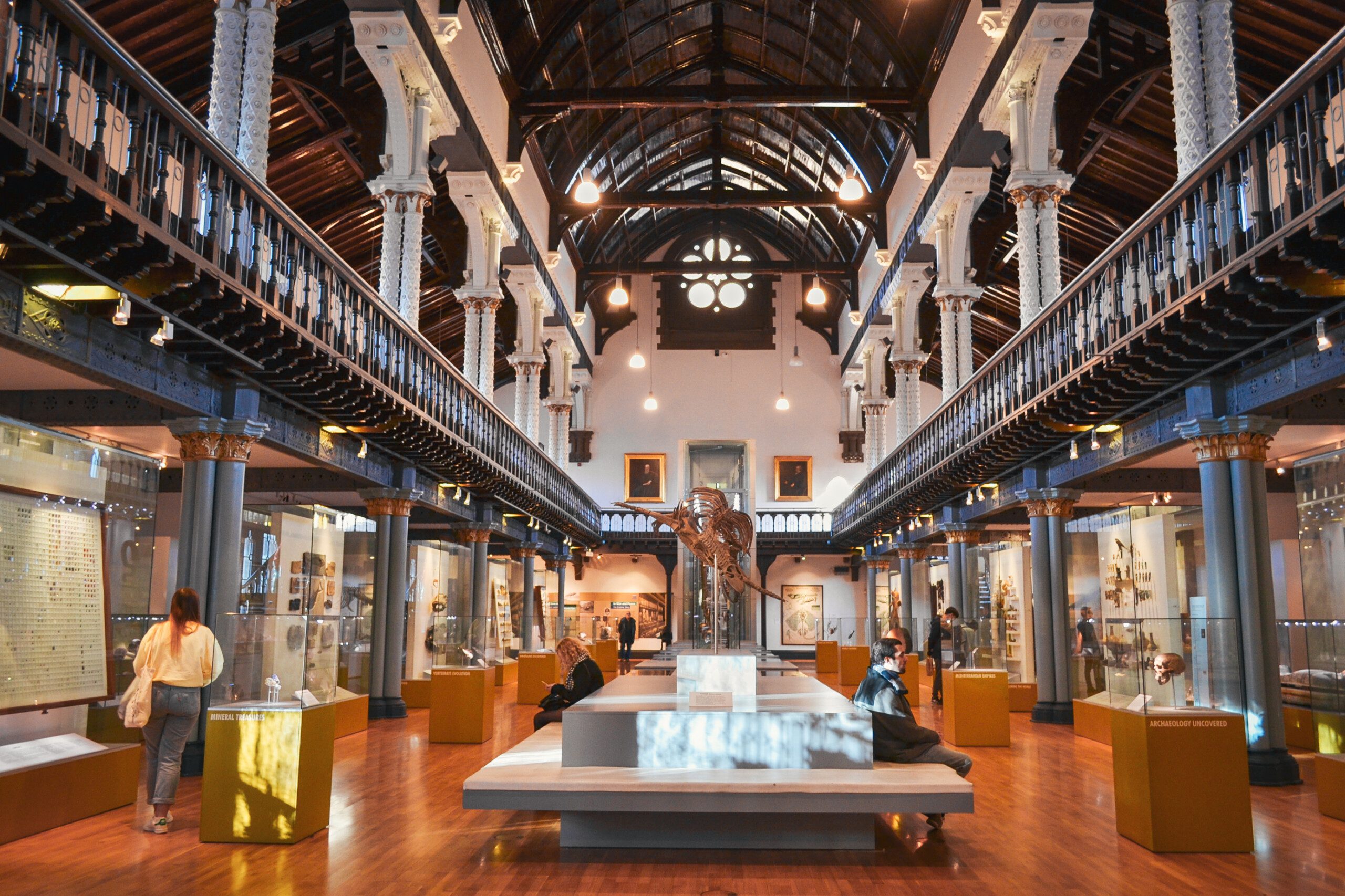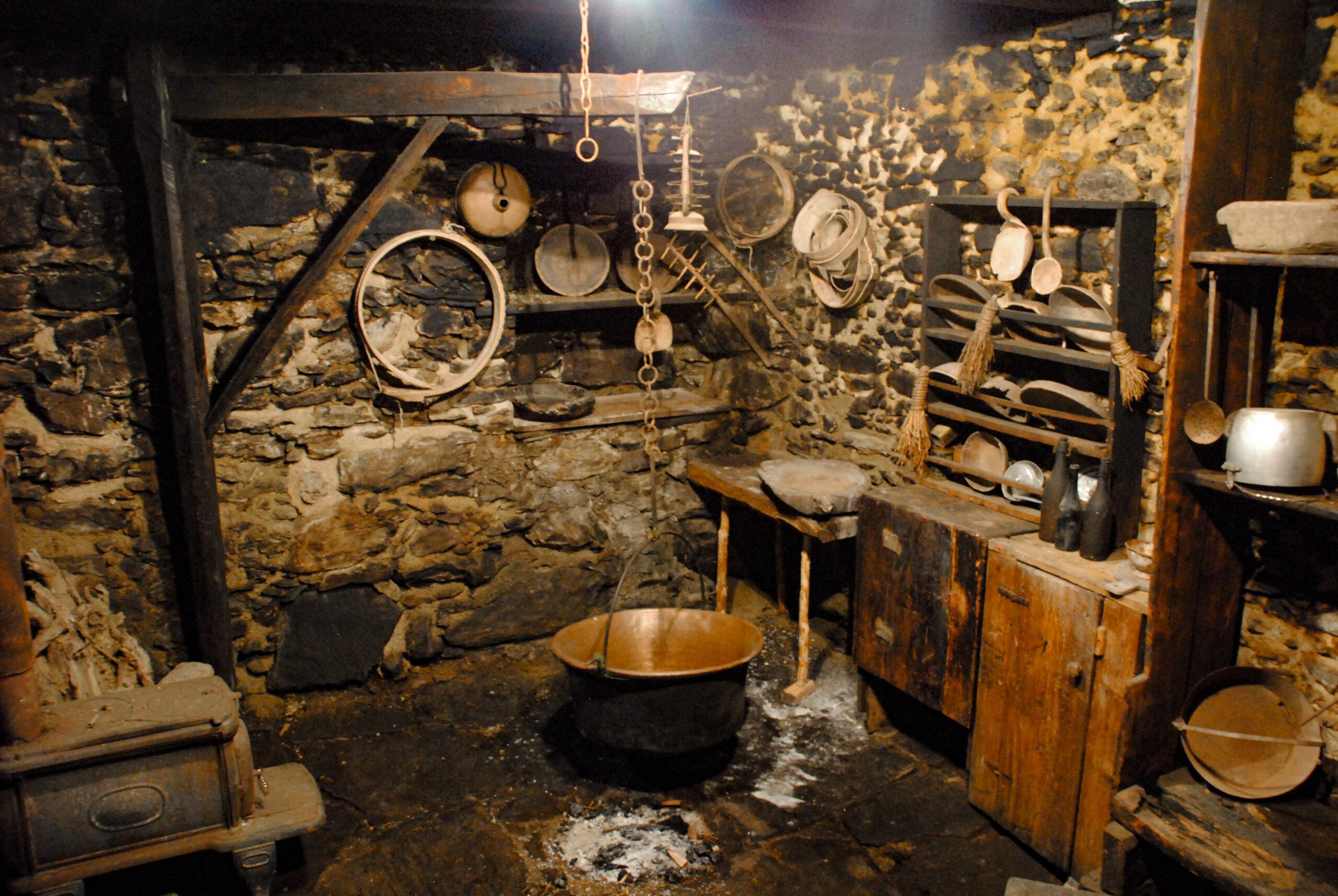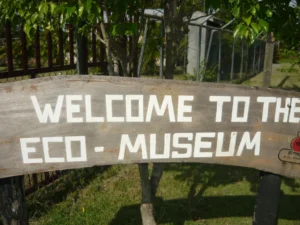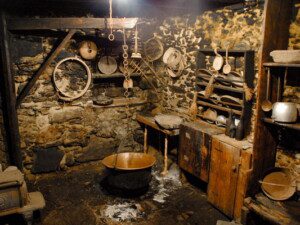River Hiking Guide: Reference scheme

Scheme D) Unregulated profession without a defined scheme (provisional scheme)
The reference scheme is based on the 'modelSkills Cycle' and is in line with the 'Tourism, Arts, Heritage Competence Framework (TAH-CF)'. the TAH-CF is defined in accordance with the European Qualifications Framework (EQF), the Recommendation of the European Parliament and of the Council 2009/C 155/02 (ECVET) and the APNR (Non-Regulated Professional Activities) scheme adopted by UNI for the technical standardization of unregulated professions.”
The scheme is made available to all stakeholders in the cultural tourism supply chain in order to collect comments and useful elements to improve its contents. All interested parties are invited to improve the scheme by sending their contributions to info@aiptoc.it
Description
PTU13/P6: River Excursion Guide (VI Level EQF)
The river excursion guide is a professional figure, with a high intellectual content, capable of accompanying individuals or groups on river routes, illustrating, in general terms, the naturalistic, environmental, anthropological and cultural aspects of the territory.
The River Excursion Guide is essentially a hiking guide specialized in river tourism who has specific skills to carry out activities of:
- Design, organisation, communication, implementation and improvement relating to excursion offers associated with river itineraries in relation to the characteristics of the users and the different types of terrain and the river context
- Technical assistance on equipment and functional equipment for the correct execution of the excursion
- Support for any teaching activities of: environmental education and sustainable tourism.
The River Excursion Guide has a profound knowledge of his territory with particular reference to the natural, environmental, cultural and river aspects in order to identify and prepare itineraries of river interest, organizing and carrying out excursions in maximum safety and with protections suitable for the type of excursion and adequate equipment for hikers.
The River Hiking Guide manages to reconcile knowledge of the Cultural Heritage of its territory with river routes also in order to deepen the knowledge of elements of local identity not only from a river point of view but also from an anthropic, historical and cultural point of view.
The River Excursion Guide can carry out the activities both on his own (self-employed) and for other interested parties as an Expert/Consultant
Fundamental tasks and specific activities
- T1: Assess user needs and expectations for the reference sector (demand)
- T2: Identify the purpose, objectives and type of offer (e.g. classic river routes, educational routes, cultural thematic routes, etc.)
- T3: Analyze the Reference Context
- 1 Identify and analyze the sector legislation
- 2 Identify and analyze the stakeholders (who are the interested parties: internal / external)
- 3 Identify and Analyze the attractions (Natural, Environmental, Cultural and River Heritage)
- T4: Planning the excursion offer
- T5: Communicate the excursion offer
- T6: Create the excursion offer
- 1: Plan activities from a qualitative, operational and risk prevention point of view
- 2: Define internal procedures and regulations
- 3: Manage economic resources (budget)
- 4: Manage human resources (staff)
- 5: Safely guide the group along the pre-established itinerary
- 6: Ensure the correct execution of excursions
- 7: Support any Environmental Education and Sustainable Tourism activities
- 8: Verify and monitor compliance with the applicable legislation in force
- 9: Monitor service quality
- 10: Provide technical assistance on equipment and functional equipment for the correct execution of the excursion
- T7: Improve the offering (continuous improvement)
Optional tasks
- T8: Carry out first aid yourself in the event of accidents or illness
- T9: Interfacing in a foreign language according to the territorial target of reference of its customers
Note: The optional aspect T8 is linked to the presence, in the team of excursion leaders, of a figure in possession of the skills to carry out first aid interventions in the event of accidents or illness (skills demonstrated by possession of the certificate issued following the attendance of a BLS first aid course provided by authorized bodies). If the Guide is the only member of the accompanying team, task T8 becomes mandatory.
The competence of the T9 task can also be made available by other members of the accompanying team if required by the user.
Profile Evaluation Criteria
To certify the possession of skills, it is proposed to take into consideration methodologies that take into account the following aspects in a non-mutually exclusive manner, i.e. possibly in combination with each other:
- Qualifications awarded in the academic field (Formal Learning)
- Specific Training (Non-Formal Learning)
- Work or Professional Experience (Informal Learning)
Work or professional experience can be demonstrated through various tools including:
- Curriculum Vitae
- Professional portfolio
- Objective placement on the market (awards, regional, national or international recognition)
- Publications (scientific or editorial)
Requirements for access to the professional figure
Since the professional figure is not organized in an order or college, the requirements may vary based on the relevant Professional Association or other criteria established by the individual interested parties. Below are the requirements adopted by AITOC - Italian Association of Tourism Professionals and Cultural Operators.
- Having attended specific training courses for the professional figure in question organized / recognized by Universities, Regions or Associations of professionals established pursuant to law 4/2013 and recognized by the MISE and at least six months, even non-continuous, of proven work or professional experience in the reference sector
Or
- Having attended a specific training course whose contents are explained by UNI standards, where existing, as long as they are consistent with the skill in question and at least 6 months of work or professional experience in the reference sector
Or
- Three-year degree and at least two years, even if not continuous, of proven work or professional experience in the reference sector
Or
- Second grade secondary school diploma and at least five years, even if not continuous, with proven work or professional experience in the relevant sector
Or
- Be included in the Registers of Professional Associations established pursuant to Law 4/2013 and recognized by the MISE as long as they refer to the competence in question
- Be included in Registers of Certified Professionals based on specific UNI standards, where existing, as long as they are consistent with the expertise in question
-
Related searches on the Skills Archive Databases (UNDER IMPLEMENTATION)
Training courses that release the professional competence in question: PTU13/P6 courses
Professionals with the relevant professional competence: PTU13/P6 Professionals
Featured Heritage Interpretation
Featured training
Basic courses
High Specialization Courses





















